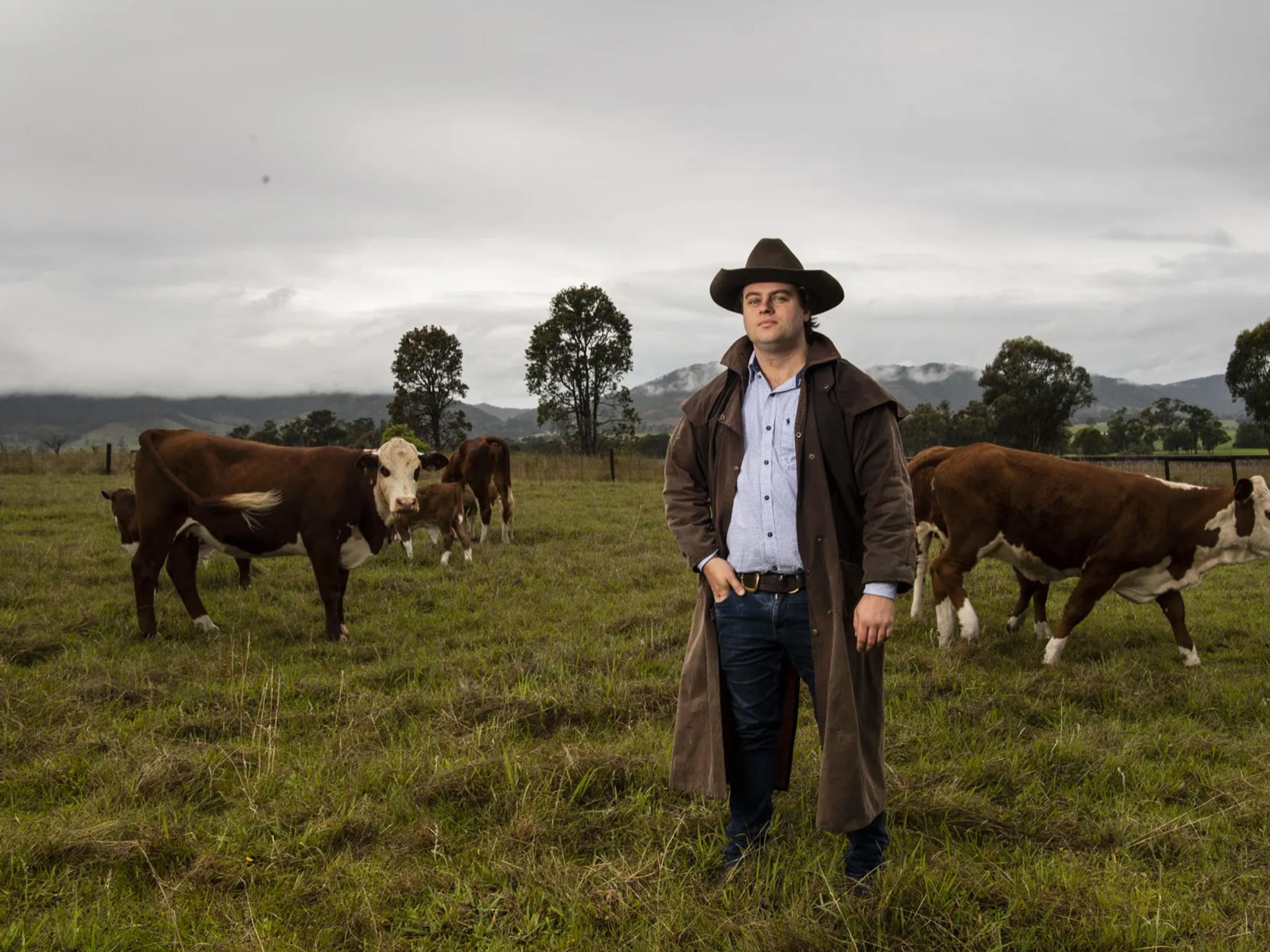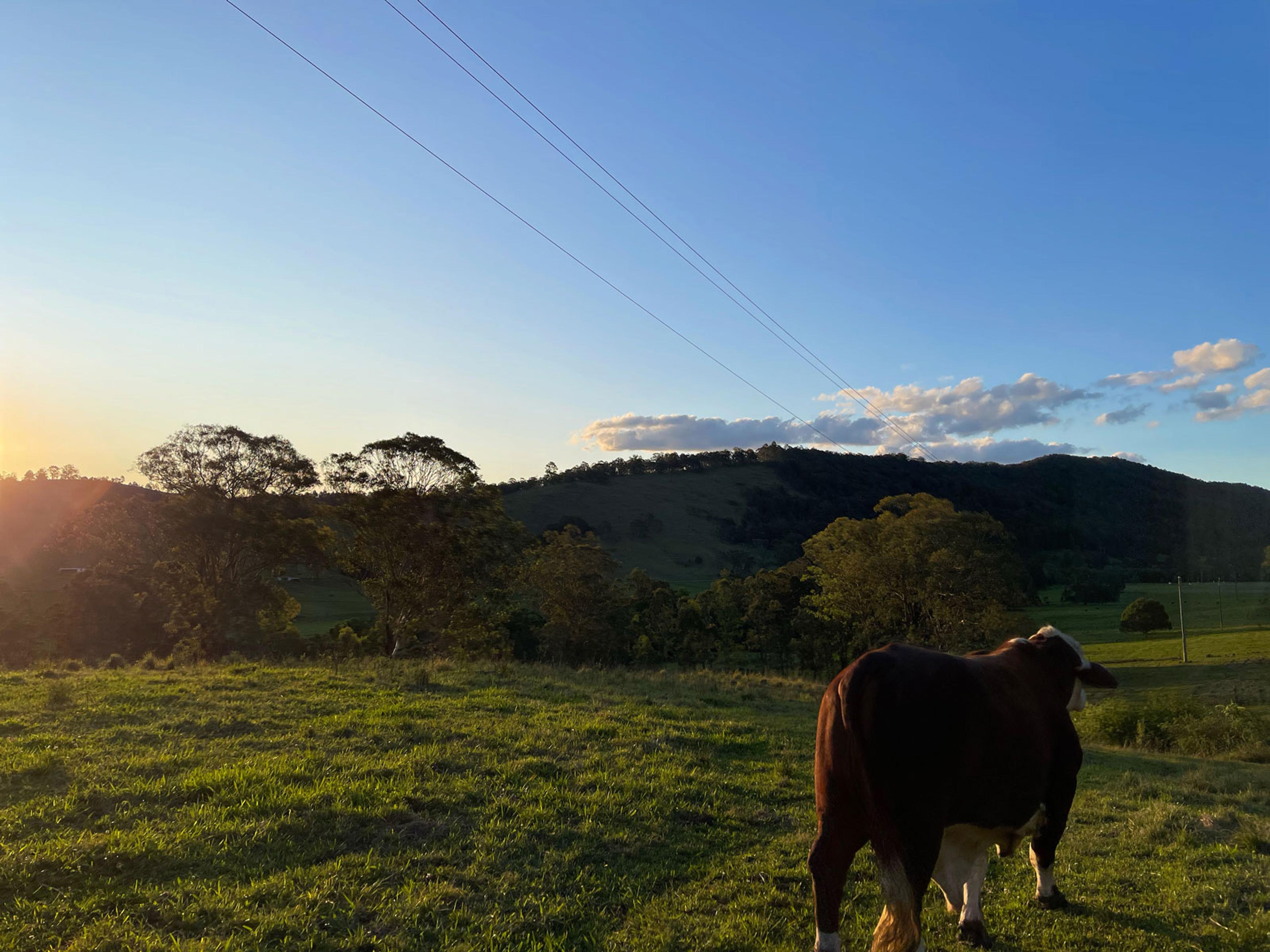Decolonising Regenerative Agriculture - A New Pathway
Josh Gilbert is a Worimi man, Sustainable Table advisor and leading advocate for Indigenous representation in agriculture. He is currently pursuing a PhD to explore the role of Indigenous people in agriculture.
The tracking of massacre maps across this country demonstrates the plight of agricultural pursuit in Australia, colonising landscapes and the oldest living culture on Earth. They tell of poisoned dampers, forcing plunges off cliffs aided by men on horseback and emphasised in the unwritten code of violence drafted in literature recording narratives of “nigger hunts and murders” around the Aussie stockmen’s campfire. It was agricultural endeavours, the riding on the sheep’s back, that led a forced regime to register legal titles on land and devoid it of anything Indigenous - people, culture and connection.
As a tool, the agricultural narrative forced a division between farmers and Indigenous people, with anthropologists tilting these two concepts on a seesaw. The more Indigenous people became engaged in agricultural labour, the “less Aboriginal” they were seen to be - incapable of having an Indigenous identity in an industry that attempted to erase our cultural ties. The rhetoric and mythology of the Australian cowboy eroded Indigenous connection to lands and replaced them with concepts of a wilderness, whereby nature needed taming.
Unpaid and indentured labour, or slavery, further deprioritised and devalued Indigenous knowledge on farms. Our pre-colonial practices developed over millennia, now interpreted and practised by Indigenous brothers and sisters, provide some development as to the intricacies of the agricultural systems built by our people. Yet even these are challenged by white anthropologists and lounge chair commentators who seek to define our truths.
Today, I again get disturbed by the white narrative used to tell the story about First Nations farmers. Somehow, in the development of new agricultural models such as regenerative agriculture, a narrative has begun a new attempt to colonise and erode Indigenous viewpoints and force our people into silence. It’s the new form of Indigenous colonisation in agriculture—one of assuming our knowledge and silencing our voices, utilising interpretations to present Indigenous knowledges for personal gain and relevance.
This affirmation of agricultural colonisation is built on premises like “regenerative agriculture originated from Indigenous cultures” or “these methods were developed by understanding Indigenous methodologies.” Yet, these conversations are often void of Indigenous leaders, erasing our worldviews and interpretations and creating a generalised understanding of this place and the agricultural methods we refined. Instead, these premises further push us to the fringes, enforcing a viewpoint that non-Indigenous farmers would prefer us not to enter these spaces.
The emergence of these narratives has meant that the idea and definition of Indigenous agriculture have become oversimplified, like most things in Western agriculture. The intricate knowledge systems of Indigenous landscapes have seemingly been reduced to a set of principles that can be readily adopted by non-Indigenous people. Worse still is the desire for these methods to be certified or passed on by white farmers who have cleaved an understanding of cultural knowledge and have now come to society's rescue to save the planet using our skills.
We must explore behind the words and the generalist veil to create actual reconciliation in agriculture, decolonising engrained practices and encouraging a new pathway. One that does more than assume Indigenous insight into practices but instead partners with First Nations people to learn practices more holistically, allowing us to lead the conversation about our actual understandings and contexts. One that truly embeds us in the agricultural picture and narrative, not just assumes that we are.
To do this, we need to invest in Indigenous leadership in this movement. We need to back Indigenous enterprises that challenge this new familiar rhetoric and expand the agricultural thinking and discussion beyond perception and understanding to embedding and doing. To culturally adapt farming practices to continue farming this country for the next 60,000 years, we need to be mindful of who is telling the Aboriginal yarn and where our voices are silenced or implied.
Instead of defining Indigenous agriculture by a set of principles, which historically non-Indigenous people have tried to erase or now copy, the definition must be built around the people who are conducting the activities. Indigenous people must be the only persons conducting Indigenous agricultural activities, whether they match pre-colonial systems in the development of our bushfoods or whether, as culture has transformed, they represent Western agricultural production. Any definition that wholly focuses on principles and understanding again places our culture on the seesaw with agriculture.
To define Indigenous agriculture in Australia, I suggest that we define it as any Indigenous person engaged in some sort of agricultural production. It's simple, really. This definition breaks the colonial rhetoric and puts us back in a position of power—self-determining what we want to do in this space and ensuring that non-Indigenous society does not continue erasing us from this narrative.
To reinforce our self-determined rights and develop nation-building principles in agriculture, I have been conducting PhD research entitled Indigenous Agriculture Towards Modernity: the Role of Indigenous Peoples in Western Agricultural Systems.
The aims of this research are to:
- Understand the size and scale of Indigenous agriculture in Australia, including Western agricultural involvement.
- Quantify Indigenous employment and business involvement/ownership in agriculture.
- Develop a new narrative of adaptability and historical involvement and identify future opportunities for representation within the sector.
- Understand how Indigenous people wish to be represented in agricultural bodies and organisations.
I’d strongly encourage all mob to fill out this short survey. It takes 15 minutes and will develop data and understanding that asserts our place in the sector.
A true involvement of First Nations people in agriculture impinges upon the self-determined activities of contribution, challenging the colonisation of an industry that actively sought our exclusion. It means prioritising Indigenous voices at the table and recognising the contributions of our people across this landscape. While these conversations remain narrated by non-Indigenous people, we have failed in the self-determining frameworks of Indigenous involvement in agriculture.
Learn more about the work Joshua is doing here or follow him on Facebook, Instagram and LinkedIn.

